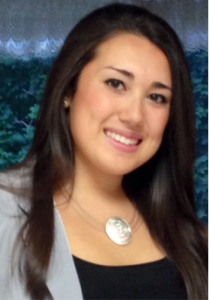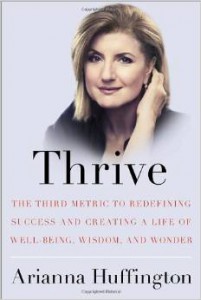The holidays are a very special, neigh, magical time that transform colored lights on a wire to a symbol of family, joy and camaraderie. Like the ending to The Grinch, December often comes hand-in-hand with a swelling heart and the passing out of free ear-to-ear smiles. But who says this spirit of giving has to end with the New Year? There are countless ways you can help those in need year-round, with a meaningful approach that will simultaneously strengthen your personal and professional character.
 According to the National Center of Charitable Statistics, there are over 1.5 million non-profit organizations in the United States, all of which have strict budgets and manpower to make the impact their causes deserve. Only a lucky few get national notoriety like the ASL Ice Bucket Challenge or can convince professional athletes to wear pink for a month.
According to the National Center of Charitable Statistics, there are over 1.5 million non-profit organizations in the United States, all of which have strict budgets and manpower to make the impact their causes deserve. Only a lucky few get national notoriety like the ASL Ice Bucket Challenge or can convince professional athletes to wear pink for a month.
With that in mind, I can say with 99% certainty (because let’s face it, nothing in life is guaranteed) that if you were to propose volunteer freelancing to a not-for-profit, they would embrace you with open arms. And unlike the demands of an internship, you’ll likely be able to conduct your work from home and on your own schedule. (Can I get a Hallelujah?!) Through this kind of volunteerism, you’ll have the ability to develop your professional skillsets in a low-risk and high intrinsically rewarding environment.
The first step lies in selecting an organization that supports a cause you are passionate about. Maybe you love animals. Or perhaps your aunt has lymphoma, and you’d like to volunteer for the Leukemia & Lymphoma Society in her honor.
Whatever you decide, pick a non-profit that you have a personal connection to; your creative process will be more inspired and your work will reflect that. It is widely agreed in the science community that “energy cannot be created or destroyed, but can only be changed from one form or another.” I argue that true organic passion is not produced, but manifested; and it is often contagious.
Now, once you’ve found your calling and contacted the organization, take some time to be honest with all parties involved on how much time you’d like (and can realistically give) to donate in their honor. As in dating, there is no shame in admitting you’re not looking for a full-time relationship, so long as you haven’t promised them the moon already. A simple conversation about what you’re both looking for upfront will save a lot of frustration and time wasted. Nevertheless, if Goldilocks could find herself the perfect porridge, there IS a winning combination to be found for everyone.
Here are some ideas:
For the commitment-adverse:
- Offer a free, one-time evaluation of their online presence. Look at their website, social media outlets, customer reviews etc. and provide professional suggestions on ways to improve and the best places to advertise for various budgets. You could even take it a step further and write fact sheets for their top five competitors for comparative purposes.
For the casual daters:
- Create a content calendar and tactical plan for the next 3-6 months of their social and/or public relations campaign(s).
- Guest write for their newsletter or emails once a month.
For the long-term relationship:
- Become a volunteer consultant/team member: Write press releases, create story pitches, targeted media lists, execute their social media channels, etc. The possibilities are endless.
In the end, the relationship will be what you make of it; the more work and effort you put in, the greater value and rewards will be waiting for you. We may not all have time or skills to build a home for orphans in Tijuana, but we can certainly offer more than our signature on a check. And in our line of work, procuring the eyeballs and attention of the masses might just be what makes their organization (and yourself) great-full this holiday season.

Megan O’Neal graduated from UCLA in 2011 with a Bachelor of Arts in Communication Studies, emphasizing in mass communications. She is currently the PR Coordinator at Marketing Design Group and volunteers with the National Multiple Sclerosis Society, freelancing for the public relations department. Connect with her on Twitter @megannenicole.





 Catalina Gomez is a graduate of Philadelphia University with a Bachelor of Science in Professional Communication. She specializes in public relations and has experience working with lifestyle and consumer brands. Catalina is also an active member of the Hispanic community and currently resides in Maryland. Connect with her on
Catalina Gomez is a graduate of Philadelphia University with a Bachelor of Science in Professional Communication. She specializes in public relations and has experience working with lifestyle and consumer brands. Catalina is also an active member of the Hispanic community and currently resides in Maryland. Connect with her on 
